Train the Trainer Courses: Building Internal Training Capabilities
Maintaining robust workplace safety standards is essential to operational success in the modern company landscape, and it goes beyond compliance. Investing in Train the Trainer programs positions organizations to cultivate their internal experts who can adapt safety training directly to the needs and challenges of their environments. Such initiatives not only empower employees but also foster a culture of safety and continuous improvement.
Strategic Benefits of Developing Internal Trainers
The strategic integration of Train the Trainer programs within an organization offers significant benefits. Primarily, it ensures that critical safety knowledge is deeply embedded within the company, facilitating ongoing adherence to safety protocols and quick adaptation to changes in work processes or regulatory demands. Internal trainers act as on-the-ground experts who can tailor training sessions to address immediate and specific safety concerns, enhancing the relevance and significance of safety education.
Enhancing Training Outcomes Through Effective Learning Strategies
An effective blend of classroom instruction and practical ground is the backbone of this program’s curriculum, which strives to satisfy the demands of a wide scope of trainees. The training incorporates interactive workshops, precise case studies, and realistic simulation exercises. These varied methods are integral in narrowing the gap between understanding concepts and applying them in real-world scenarios, ensuring that the training not only imparts knowledge but also equips participants with the skills necessary for effective implementation and lasting knowledge retention. To enhance safety results and participant engagement, this approach makes sure that every session is practical and relevant to the workplace.
Comprehensive Curriculum Covering Wide-Ranging Safety Topics
This well-rounded course covers extensive topics crucial for comprehensive workplace safety. This incorporates but is not limited to, ergonomic safety, risk assessment, emergency response, and effective communication of safety protocols. The curriculum is developed to equip trainers with the aptitudes needed to conduct assessments and recognize hazards, as well as to respond effectually to workplace incidents and emergencies.
Certification and Credibility in Safety Training
Upon completion, participants of the program typically receive certifications that are recognized industry-wide, lending credibility to both the trainers and the organization. These certifications validate the organization’s commitment to maintaining high safety standards and demonstrate compliance with regulatory bodies, which can be crucial for meeting legal requirements and achieving industry certifications.
Ongoing Support and Resources for Trainers
Effective programs provide continuous support and resources to newly certified trainers, ensuring they have access to up-to-date information and tools to perform their roles effectively. This might include access to online resources, ongoing education options, and communities of practice where trainers can share insights and challenges, further enhancing their capabilities and the safety culture of the organization.
Empowering staff with the capability to conduct in-house safety training is a pivotal strategy for any organization looking to enhance workplace safety and compliance. At Safety First Training, these goals are met through a series of comprehensive Train the Trainer certification courses that are meticulously designed around OHSA guidelines. Whether through Theory Courses that cover essential safety knowledge or Equipment Courses that focus on practical handling, each training module is designed to enhance internal capabilities and ensure regulatory compliance. By incorporating these courses, businesses can guarantee that their safety trainers are up-to-date on all the latest rules and regulations and have the tools they need to teach their personnel.
Recent Blogs
- Aerial Lift Platform Training
- National Day of Mourning - April 28
- WHMIS Training in Richmond Hill
- Fire Safety Training Etobicoke
- FIRST AID & CPR TRAINING
- Aerial Lift Facts
- Why CMRAO Requires CPE Credits for Condo Managers & How to Earn Them
- WHMIS Training and Certification in Pickering
- Forklift Use in the Workplace
- WHMIS Training Certification in Brampton
- WHMIS Training and Certification in Markham
- Industrial Lift Equipment Training
- Online Safety Training
- Counterbalance Forklift Training Whitby
- WHMIS Certification in Vaughn
- Counterbalance Forklift Training in Ontario: Boost Safety and Compliance with Safety First Training
- Transportation of Dangerous Goods
- Scissor Lift and Genie Boom Training In Toronto
- Scissor Lift Training and Certification for Safe Operations
- Air Quality a Main Reason for Respirator Mask Fit Testing


